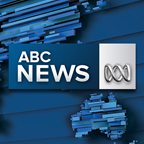
China's foreign ministry say the confidence of Chinese companies will be dented by the fact that Australia has recently turned several away in the name of national security.
Key points:
- The latest comments come as tensions between both governments worsens
- China's foreign ministry spokesman says Australia is making it harder for Chinese companies to invest
- He wants the Australian Government to "seriously reflect" on its decisions and create a "fair" investment environment
Foreign ministry spokesman Wang Wenbin made the comments at a regular media briefing.
Relations between the two nations have deteriorated, with Australian journalists pulled out of China and the ABC this week revealing that Australian police accessed Chinese diplomats' emails and messages as part of an investigation into foreign political interference.
During a daily press briefing on Friday, Mr Wang said Australia was "purposely setting up obstacles" to make it harder for Chinese companies to invest.
"Recently, Australia has repeatedly vetoed Chinese companies' investment projects in Australia on the grounds of so-called national security and has frequently imposed unreasonable restrictions on the normal exchanges and cooperation between the two countries in various fields," he said.
"This will inevitably seriously affect the confidence of Chinese companies to invest in Australia."
In August Treasurer Josh Frydenberg stopped the sale of Lion Dairy, which owns brands including Dairy Farmers and Pura Milk, to Chinese company Mengniu Dairy.The sale was reportedly worth $600 million but Mr Frydenberg said the deal was not in Australia's national interest.
Telecommunications company Huawei has been one of the highest profile Chinese businesses targeted by the Australian Government.In 2018, when Malcolm Turnbull was prime minister, the Federal Government introduced guidelines that effectively banned operators from using Huawei-made equipment in their 5G networks.
The decision was made on national security grounds after recent laws had been introduced to disqualify companies which were "likely subject to extrajudicial directions from a foreign government that conflict with Australian law".
At the time, Huawei's Australian arm strenuously denied it was controlled by Beijing after being banned from the 5G rollout.
PM changes the rules on foreign investment
In June, Prime Minister Scott Morrison announced changes to Australia's foreign investment rules.
Under the new plan, the Foreign Investment Review Board (FIRB) would have to approve all investments in "sensitive" sectors including communications, technology and energy.Mr Wang told reporters the Australian Government should "create convenient conditions" for Chinese companies to continue to invest.
"We hope that the Australian Government will face the reality, seriously reflect on it, and effectively create a fair, open and non-discriminatory investment environment for foreign investors," he said.

Australia's tense relations with China worsened this year after Australia called for an international inquiry into the source of COVID-19, which emerged in China late last year.
Chinese company Zhenhua Data was also found this week to have a database with information of more than 35,000 Australians.The leak has raised further questions about the spread and scope of China's intelligence-gathering operations.
China's Government has condemned allegations that Beijing tried to infiltrate Australian politics as a "malicious smear and slander".Reuters/ABC




























